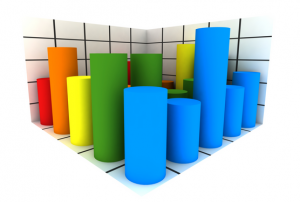According to theorist and professor Johan Huizinga, play is “free activity standing quite consciously outside ‘ordinary’ life.” He also described it as being “‘not serious” but at the same time absorbing the player intensely and utterly.”
The National Institute for Play defines play as “a state of being that is intensely pleasurable.” It energizes and enlivens us. It eases our burdens, renews a natural sense of optimism and opens us up to new possibilities.” They go on to note, “Scientists—neuroscientists, developmental biologists, psychologists, scientists from every point on the scientific compass—have recently begun viewing play as a profound biological process.” In other words, play is a core aspect of human nature. As such, it needs to be an essential part of work in order to leverage all that people have to offer. When play becomes a key component of a healthy corporate culture, it fosters positive thinking and creative imagination.
If we choose to leave our childish things behind, we not only deny our essential humanity but also cut ourselves off from a tremendous reservoir of creativity with the potential to make us happier and make us more effective contributors at work.
Excerpted from The Intuitive Compass, Jossey-Bass, 2011.


